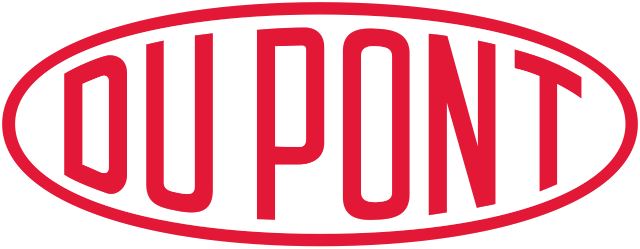
[Courtesy of Du Pont]
SEOUL -- Responding to Seoul's aggressive campaign to diversify the supply line of key materials regulated by Japan, DuPont has submitted a $28 million investment plan to build a plant for extreme ultraviolet (EUV) photoresist, a crucial material in the electronics industry, at its production base in South Korea.
DuPont President Jon Kemp submitted an investment declaration to Invest Korea head Chang Sang-hyun following talks with Trade, Industry and Energy Minister Sung Yun-mo in Silicon Valley on January 8 ahead of his roundtable meeting with American investors. Invest KOREA is an investment promotion organization providing customized services to foreign investors.
The plant for photoresists and chemical mechanical planarization (CMP) pads, both used for the production of microchips, will be built by the end of 2021 in the central city of Cheonan where DuPont produces material parts for semiconductor circuit boards through its South Korean unit, Rohm and Hass Electronic Materials Korea.
"EUV photoresist is currently largely dependent on imports from Japan. It is very meaningful in that this investment will contribute to diversifying supply lines to U.S. and EU companies," Sung's office said Thursday in a statement. South Korea has been heavily dependent on Japanese photoresist.
The capacity of DuPont's photoresist plant was not disclosed, but Kemp promised to work closely with South Korean suppliers by conducting demonstration tests for the production of EUV photoresists. Some Korean companies are capable of producing photoresists, but chip producers still question their quality.
"Although some progress has been made recently in resolving Japan's export regulations, such as allowing specific comprehensive permission for EUV photoresist, it is difficult to see it as a fundamental solution," Sung was quoted as saying. "The government will continue to secure technological competitiveness in key materials, components and equipment and diversify supply lines."
Japan has strengthened regulations on exports of photoresists, fluorine polyimide and hydrogen fluoride. In response, South Korea is trying hard to diversify supply lines or localize key materials regulated by Japan. In December, Japan partially lifted curbs on photoresist exports.
Photoresists are a light-sensitive material to form a patterned coating on a surface. Hydrogen fluoride, also known as etching gas, is used to wash away foreign substances in the process of piling up silicon wafers. Hydrogen fluoride is an industrial raw material used in the manufacture of products including refrigerants.
Samsung Electronics, the world's largest microchip producer, has partnered with Wonik Materials, a specialty gas manufacturer in South Korea, to localize etching gas. Samsung's domestic rival, SK hynix, followed suit to secure a stable supply of key materials.
Tokyo's strengthened regulations began on July 4, sparking a broad boycott campaign against Japanese products, especially among young people who had been generally indifferent to a diplomatic row related to Japan's 1910-45 colonial rule.
Copyright ⓒ Aju Press All rights reserved.



